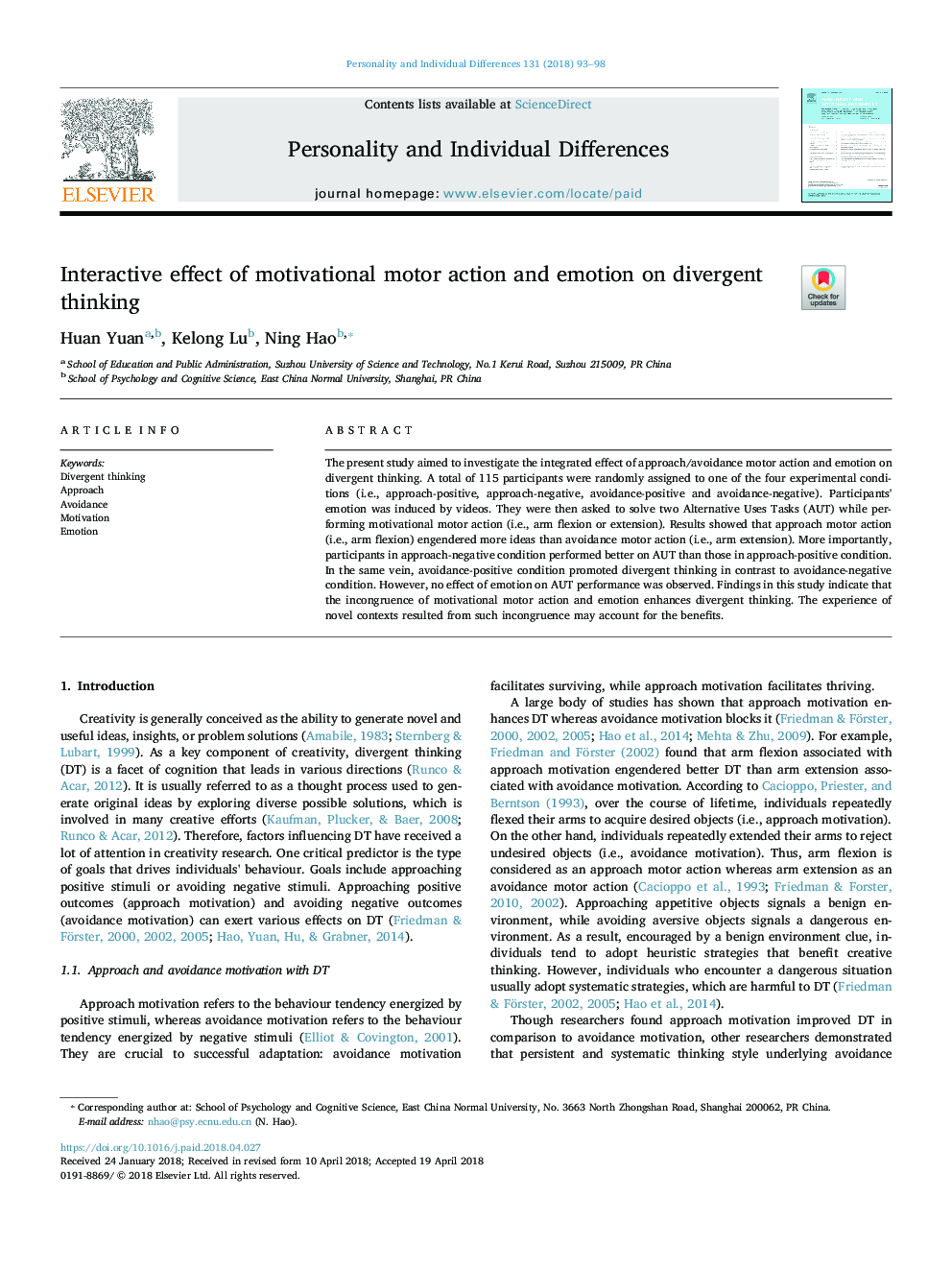| Article ID | Journal | Published Year | Pages | File Type |
|---|---|---|---|---|
| 7248569 | Personality and Individual Differences | 2018 | 6 Pages |
Abstract
The present study aimed to investigate the integrated effect of approach/avoidance motor action and emotion on divergent thinking. A total of 115 participants were randomly assigned to one of the four experimental conditions (i.e., approach-positive, approach-negative, avoidance-positive and avoidance-negative). Participants' emotion was induced by videos. They were then asked to solve two Alternative Uses Tasks (AUT) while performing motivational motor action (i.e., arm flexion or extension). Results showed that approach motor action (i.e., arm flexion) engendered more ideas than avoidance motor action (i.e., arm extension). More importantly, participants in approach-negative condition performed better on AUT than those in approach-positive condition. In the same vein, avoidance-positive condition promoted divergent thinking in contrast to avoidance-negative condition. However, no effect of emotion on AUT performance was observed. Findings in this study indicate that the incongruence of motivational motor action and emotion enhances divergent thinking. The experience of novel contexts resulted from such incongruence may account for the benefits.
Related Topics
Life Sciences
Neuroscience
Behavioral Neuroscience
Authors
Huan Yuan, Kelong Lu, Ning Hao,
